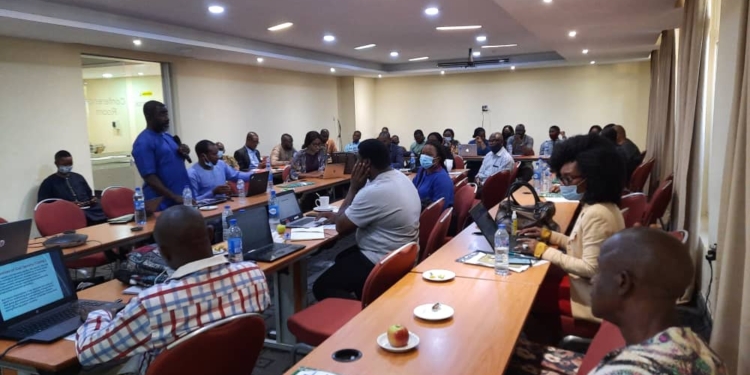The Federal Government of Nigeria has restated its commitments to develop and implement a robust social protection policy which will accommodate critical emerging global issues.
This was disclosed by Mrs. Olusola Idowu, Permanent Secretary, Federal Ministry of Budget and National Planning while giving her opening remarks at the Technical Working Group workshop on the draft Diagnostic report for the review of the National Social Protection Policy, NSPP.
The Permanent Secretary in her remarks said, “I want to restate the commitment of Government to have a robust social protection policy that accommodates critical emerging global issues particularly with the understanding that Social Protection is critical to the emerging global challenges around COVID-19 and the crash of the oil market.
“It is therefore imperative to see that the development of a new Medium-Term National Development Plan (2021-2025), the review of the National Social Protection Policy and drafting of the Social Protection bill provide an opportunity to further strengthen economic growth and wellbeing of Nigerians.”
Giving her assurance that the proposed policy will be inclusive, Mrs. Idowu commended the involvement of youths in the process, stressing that it would ensure inclusiveness in governance.
“I must say that I am particularly delighted that you engaged the Youths to harvest their inputs which I believed would go a long way to improve the quality of the reviewed Policy.
“This strategy should be sustained so that Youths will have a voice in all policy measures. The initiative would ensure inclusiveness in governance.”
Sharing the overview and objectives of the policy review, Dr. Sanjo Faniran, Deputy Director, Social Development Department, FMFBNP, explained that the review would help “to institutionalize the policy; expand programme coverage for the poor, and improve the level of benefits.”
Giving the goal of the policy, Dr. Faniran said it will “establish a gender-sensitive and age appropriate framework to ensure a minimum social floor for all Nigerian citizens for a life of dignity” adding that it will protect individuals and households from shocks that can make them fall into extreme poverty.
He also spoke on the need to engage the private sectors in the implementation of Social Protection Programmes with the aim of reducing poverty in the country.
Speaking on some of the key gaps in the existing policy, Saheed Mustapha, Senior Policy and Advocacy Advisor, Save the Children, explained that the SPP cover only a small fraction of the poor and vulnerable populations.
He also noted that there is no clear and coordinated governance structure in the implementation of the NSPP adding that, “current policy, programmes and systems have not effectively exploited potential synergies between programmes and maximize the developmental and multi-dimensional impacts that social protection can have on multidimensional poverty.”

